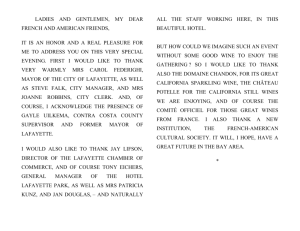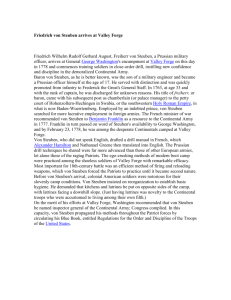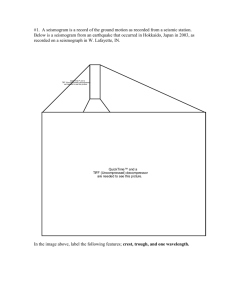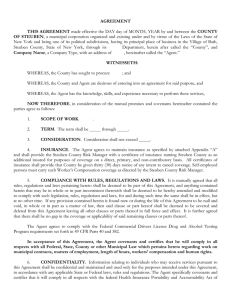Von Stuben and Lafayette - Mr. Lamb
advertisement
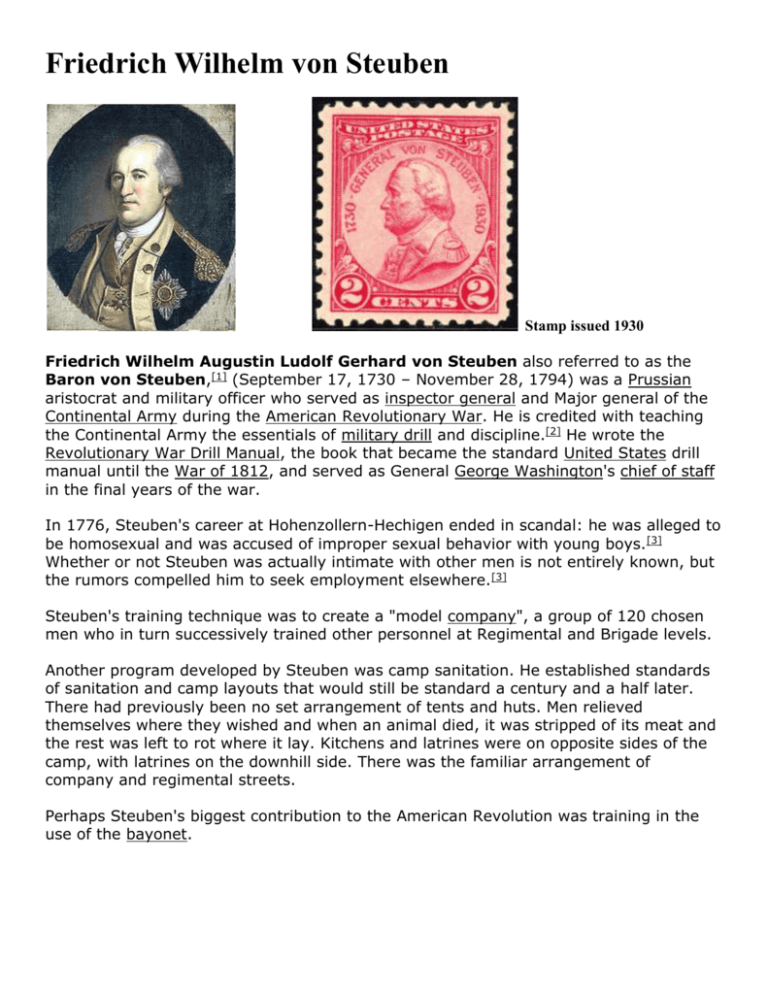
Friedrich Wilhelm von Steuben Stamp issued 1930 Friedrich Wilhelm Augustin Ludolf Gerhard von Steuben also referred to as the Baron von Steuben,[1] (September 17, 1730 – November 28, 1794) was a Prussian aristocrat and military officer who served as inspector general and Major general of the Continental Army during the American Revolutionary War. He is credited with teaching the Continental Army the essentials of military drill and discipline.[2] He wrote the Revolutionary War Drill Manual, the book that became the standard United States drill manual until the War of 1812, and served as General George Washington's chief of staff in the final years of the war. In 1776, Steuben's career at Hohenzollern-Hechigen ended in scandal: he was alleged to be homosexual and was accused of improper sexual behavior with young boys. [3] Whether or not Steuben was actually intimate with other men is not entirely known, but the rumors compelled him to seek employment elsewhere.[3] Steuben's training technique was to create a "model company", a group of 120 chosen men who in turn successively trained other personnel at Regimental and Brigade levels. Another program developed by Steuben was camp sanitation. He established standards of sanitation and camp layouts that would still be standard a century and a half later. There had previously been no set arrangement of tents and huts. Men relieved themselves where they wished and when an animal died, it was stripped of its meat and the rest was left to rot where it lay. Kitchens and latrines were on opposite sides of the camp, with latrines on the downhill side. There was the familiar arrangement of company and regimental streets. Perhaps Steuben's biggest contribution to the American Revolution was training in the use of the bayonet. Gilbert du Motier, marquis de Lafayette Marquis de Lafayette Madame de Lafayette (his Mother) Marie-Joseph Paul Yves Roch Gilbert du Motier, Marquis de La Fayette 1757 – 1834), or Lafayette, was a French aristocrat and military officer born in the province of Auvergne in south central France. Lafayette was a general in the American Revolutionary War and a leader of the Garde Nationale during the French Revolution. Benjamin Franklin wrote George Washington recommending acceptance of Lafayette as his aide-de-camp, hoping it would influence France to commit more aid.[29] Washington accepted, and Lafayette met him at Moland House in Bucks County, Pennsylvania on 10 August 1777.[30] When Washington expressed embarrassment to show a French officer the state of their camp and troops, Lafayette responded, "I am here to learn, not to teach."[31] He became a member of Washington's staff, although confusion existed regarding his status. Congress regarded his commission as honorary, while he considered himself a full-fledged commander Wounded during the Battle of Brandywine, he still managed to organize a successful retreat. He served with distinction in the Battle of Rhode Island. In the middle of the war he returned to France to negotiate an increased French commitment. On his return, he blocked troops led by Cornwallis at Yorktown. Washington and Lafayette at Valley Forge Lafayette and Washington at Mt. Vernon, 1784

